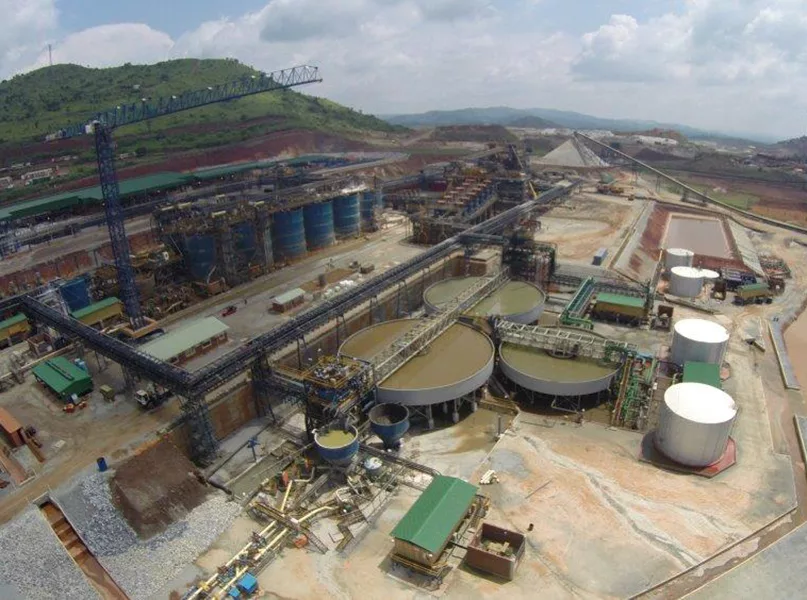Laszlo Fagyas, Business Development Director at RSC Group, discusses delivering world-class industrial services across the continent.
INTEGRAL INDUSTRIAL SERVICES
For the successful delivery of projects in the most remote and harsh African environments, there is a preferred industrial services partner of choice.
That partner is RSC Group (RSC), founded in 1987 by Louis Sacks and based at a seven-hectare (ha) blasting and painting facility in Krugersdorp, South Africa, which is one of the biggest in the southern hemisphere. RSC has evolved from a local jobbing facility to an international projects company, and is now the leading industrial services provider in Africa, spearheaded by group Managing Director, Matthew Laing.
“The facility typically handles about 1,000 tonnes of steel per month that comes in, gets blasted and painted, and then gets transported and shipped up into Africa,” opens Laszlo Fagyas, Business Development Director at RSC.
“A lot of the steel that you find on the major plants and structures being built in Africa has been touched by this yard.”
Originally a corrosion protection entity offering abrasive blasting and protective coatings, RSC has evolved to deliver full turnkey industrial solutions on projects across the continent.
By providing the world-class quality and uncompromising safety expected of RSC from its multinational partners and world-class asset owners, the business has enjoyed rapid growth and now boasts an extensive African footprint.
“RSC has grown organically with logical extensions of our brand, and I think that’s where part of the group’s formidable strength comes from. We’ve never really grown in an inorganic way; it’s been slow, consistent, methodical growth, but we have had a huge spurt in the last few years since the COVID-19 pandemic,” informs Fagyas.
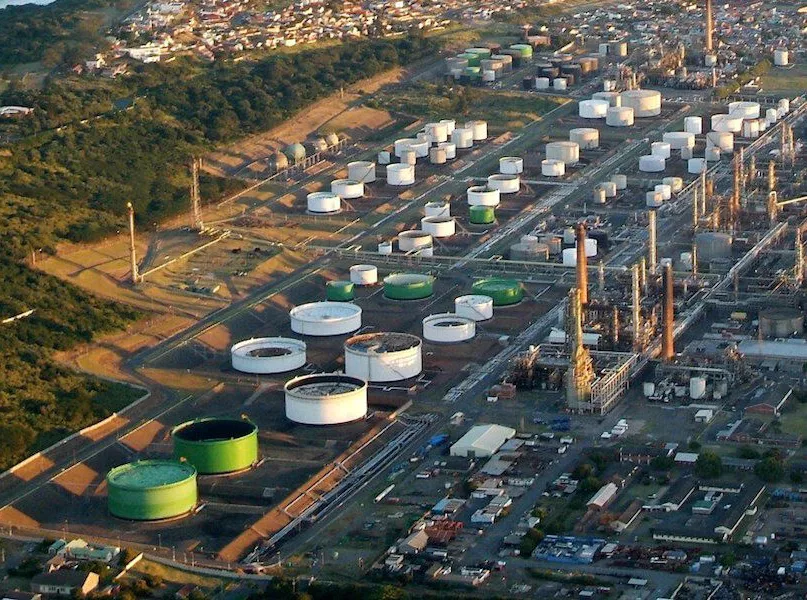
INDUSTRIAL HUBS
Complementing its Krugersdorp facility, which has the scale to double its capacity to 2,000 tonnes of steel per month, another key strength of RSC has been its ability to deploy to industrial hubs across the African continent, and from there to service remote sites.
Indeed, the group has grown its presence with branches in 12 other African countries, namely Namibia, Botswana, Zimbabwe, Mozambique, Tanzania, Kenya, Zambia, the Democratic Republic of the Congo (DRC), Ghana, Liberia, Mali, and most recently, Uganda.
This has enabled localised maintenance services to be provided to mines, power stations, and numerous industrial facilities by RSC, who establishes new branches in these countries once it has a good understanding of how the local industry operates and is always on the lookout for further growth opportunities in new locations.
“It wasn’t long before the potential was identified to touch up steel on-site in other countries, so if steel was being shipped up to DRC, for example, then we would deploy a team there,” Fagyas tells us.
“The touch-ups that were done on-site have evolved RSC into a project-based company, and it has been a substantial sector of growth on the project side.”
RSC’s developed footprint in Africa is a point of differentiation and has allowed the group to weather storms such as the COVID-19 pandemic, when most of its operations were suspended in South Africa.
It has also been ahead of the curve in terms of local partnerships in each country that are based on merit, consistency, and delivery, ensuring compliance in RSC’s operations. These extensive supplier relationships and economies of scale have also been leveraged by the group to source the best products and provide value in terms of capacity and product availability.
“Most importantly, it gives us the social license to operate in that country and acceptance by the communities and stakeholders. That’s key for us.”
“RSC has grown organically with logical extensions of our brand, and I think that’s where part of the group’s formidable strength comes from”
Laszlo Fagyas, Business Development Director, RSC Group
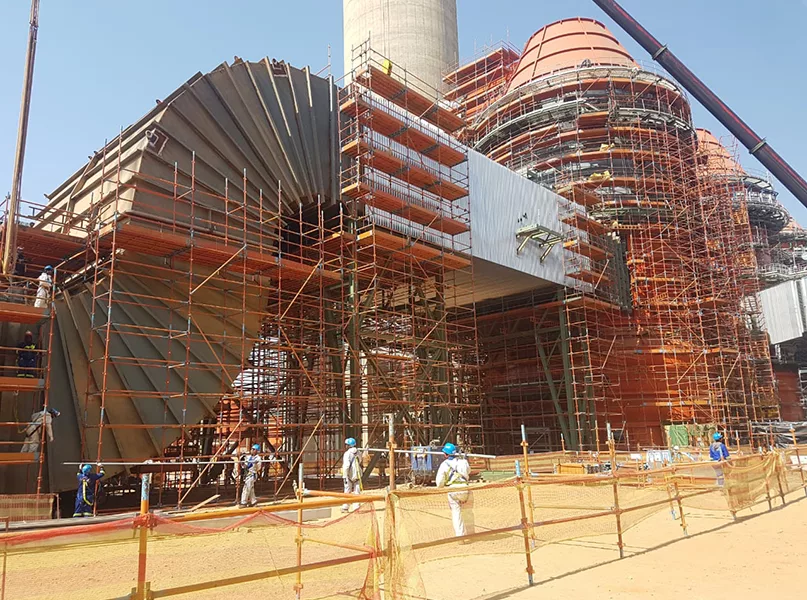
The ability to scale and grow has likewise been achieved by leveraging a dedicated shared services centre in South Africa, which supports the entire group and critically enables RSC to keep its cross-border branches lean and agile.
This is along with Africa-hardened, cross-trained personnel that further increase RSC’s agility and responsiveness, and are ready to support multinational organisations on their African projects.
“We provide authentic empowerment and skills development where it’s needed. These are practical, day-to-day, applied skills that are required, and that’s what we focus on within the group,” emphasises Fagyas.
As a family-owned business with a number of long-serving employees, multinationals are also pleasantly surprised when entering into a contract, as RSC is not a highly commercial organisation, and it prioritises getting the job done, even in testing environments.
“We work on old family values, and if we start the job, we’re going to finish it. Sometimes that means throwing significant costs, people, and resources at a project because making the delivery date is more important than the bottom line.”
Equal emphasis is given to quality and safety, which are both cornerstones of the RSC culture with ISO45001 and ISO9001 certification.
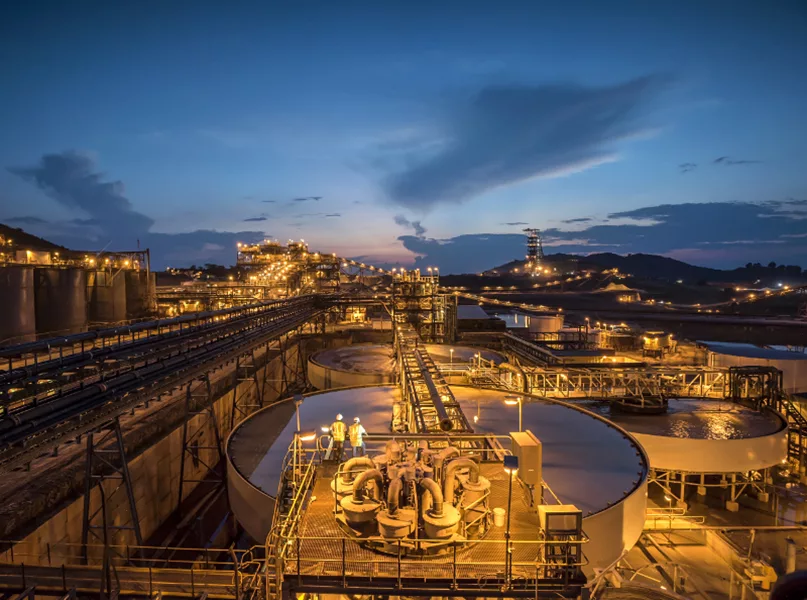
BOUQUET OF SERVICES
RSC has grown its bouquet of industrial service offerings through the logical extension of its core capabilities and brand.
This includes the addition of scaffolding and rope access techniques, which were both incorporated as a prerequisite for corrosion protection access.
“We needed access wherever we were painting on-site, so we had to incorporate scaffolding and systematically bought a considerable tonnage of scaffold to provide our own access on sites as opposed to relying on third-party contractors,” shares Fagyas.
The group also offers acid lining, tank lining, insulation, cladding, sheeting, denso pipe wrapping, thermal spray aluminium, rubber lining, concrete rehabilitation, and fire intumescent coating services, utilising RSC’s internal core engineering expertise and asset base.
“Because we’ve got engineering expertise in terms of coating and preparation, it gave birth to additional product lines. We specialise in all types of coatings, and we’ve just taken on more and more scope,” Fagyas informs us.
Fire intumescent coatings form part of RSC’s dedicated passive fire protection services, applied to steel structures such as high-rise buildings, office blocks, or airport control towers to provide fire resistance. RSC‘s fire division is looking at expanding into active fire protection systems in the near future.
Throughout Africa, there are also still huge amounts of asbestos present in structures, which was once popular for fireproofing and insulation. Asbestos removal was, therefore, another logical add-on to RSC’s portfolio, especially when operating remotely and across the border.
“We have accredited asbestos removal capabilities. It just didn’t make sense to bring in contractors, so we are registered and certified with the Department of Health,” notes Fagyas.
An additional recent add-on for the group is RSC Industrial Supplies, focusing on the provision of site-related personal protective equipment (PPE) and common industrial consumables. RSC employs 2,000 to 6,000 people at any one time and has developed a significant economy of scale and sourcing expertise for these basic mandatory requirements. It was another logical extension of its service and brand, which is now present in all of RSC’s countries of operation.
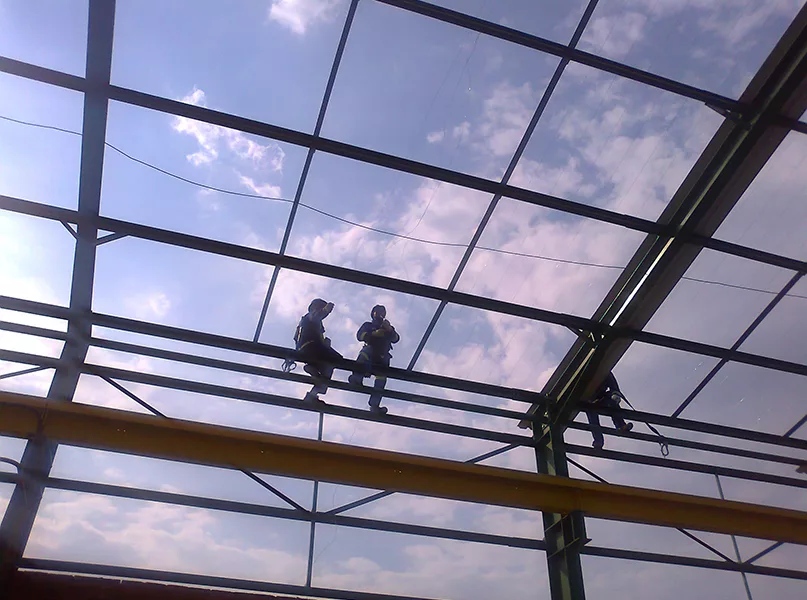
SINGLE POINT OF CONTACT
The application and surface preparation for corrosion protection also provide various blasting methodologies and ultra-high pressure (UHP) cleaning to RSC’s list of core services.
Surface preparation takes place before the application of paint, and RSC has built its own large department that handles UHP cleaning, which is so powerful it can cut steel.
UHP cleaning is a relatively new innovation and exemplifies how RSC utilises the latest technologies where possible and makes them available to the end user.
“UHP only came out a few years ago, but we jumped on board and now have an extensive fleet of UHP machines,” says Fagyas.
RSC has a rubber lining facility boasting two autoclaves and the capability to provide rubber lining services on-site. RSC supplies wear and corrosion protection on chutes, piping, and tanks using high wear-resistant natural rubber.
RSC also has a pipe pigging capabilities, offering inspection, desludging, and maintenance services. Pigging reduces the environmental impact of cleaning operations whilst reducing the loss of product and avoiding the need for line flushing.
“With these sorts of capabilities, we therefore offer a single point of contact to numerous clients for multiple industrial services,” Fagyas explains.
This single point of contact approach allows a client to receive numerous industrial services from a single contractor, saving them significantly on a single fixed and time-related cost. It also allows the asset owner to enjoy peace of mind in receiving numerous world-class services from a single credible long-term partner.
By combining all of these highly specialised and certified services, considerable savings are passed on to asset owners across the continent.
There are numerous ongoing projects in progress that RSC is excited to be involved in, including five power station maintenance contracts in South Africa, and supporting eight of the world’s top 20 mining companies with maintenance contracts. An exciting recent green project is the provision of insulation and cladding along with scaffold provision for a molten salt power plant and solar array in the Northern Cape, adding a new green dimension to RSC’s services.
“It’s likely that we will take on more industries within our scope, but once again, it will be done organically and smartly without too much fanfare or risk,” concludes Fagyas.
